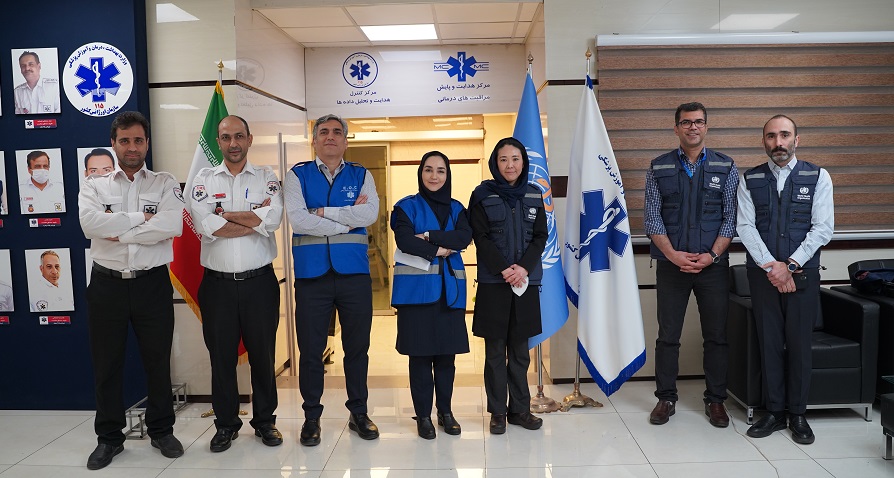 WHO country office team meets with managers of the National Emergency Management Organization (NEMO) as one of the partners of the WHO/ECHO project at NEMO headquarters in Tehran
WHO country office team meets with managers of the National Emergency Management Organization (NEMO) as one of the partners of the WHO/ECHO project at NEMO headquarters in Tehran
7 June 2023 – The World Health Organization (WHO) has launched a new project funded by the European Civil Protection and Humanitarian Aid Operations (ECHO). This project focuses on preparedness and response to public health emergencies that stem from multiple hazards. The project is designed to assist refugees and other vulnerable populations in 16 provinces in the Islamic Republic of Iran.
The specific objective of this project is to enhance capacities and functions of health facilities, including outreach services, with the aim of triggering early action in an event of an infectious disease outbreak and strengthening disaster preparedness particularly early warning systems. The EU-funded project will also support laboratory strengthening for early detection of epidemic-prone diseases in the Islamic Republic of Iran.
The project will extend support to Alborz, Ardabil, East Azerbaijan, Fars, Guilan, Hamedan, Hormozgan, Isfahan, Kerman, Kermanshah, Khorasan Razavi, Qom, Sistan and Baluchistan, South Khorasan, Tehran and Yazd provinces. In the provinces that are at a greater risk of epidemics, it is envisioned that the project will expedite the detection of epidemic-prone diseases to limit the spread of diseases and to help facilitate early initiation of clinical care. To complement, pre-hospital emergency medical care will be strengthened, not only to respond to emergencies associated with infectious disease outbreaks but also other urgent medical needs of Afghan refugees and vulnerable populations.
“Lessons learnt from COVID-19 reaffirms WHO’s often repeated position requesting Member States to invest in preparedness so that health systems are prepared in case of any emergency. This project, funded by ECHO, will go a long way in preparing the health system to respond effectively in case of any hazard. It particularly targets provinces where a more vulnerable population is living. I extend my gratitude to ECHO for being always supportive to the people of the region, when needed,” said Dr Syed Jaffar Hussain, WHO Representative in the Islamic Republic of Iran.
The country is prone to multiple natural hazards, with implications for public health, and copes with other humanitarian challenges and health emergencies, including disease outbreaks. Further, the recent deterioration of the humanitarian situation in Afghanistan has resulted in a drastic increase in the number of refugees entering the country, which already hosts a large community of refugees. This has imposed an extra burden on the country’s health system, already strained by the recent COVID-19 pandemic. The current situation in Iran calls for significant investments to improve the preparedness and resilience of the health system in the face of future emergencies.




